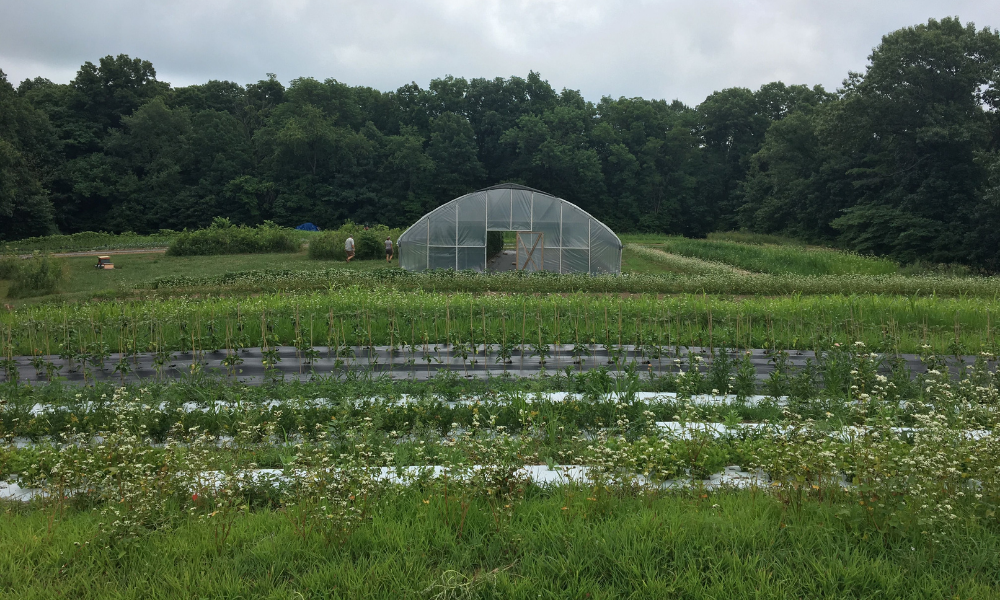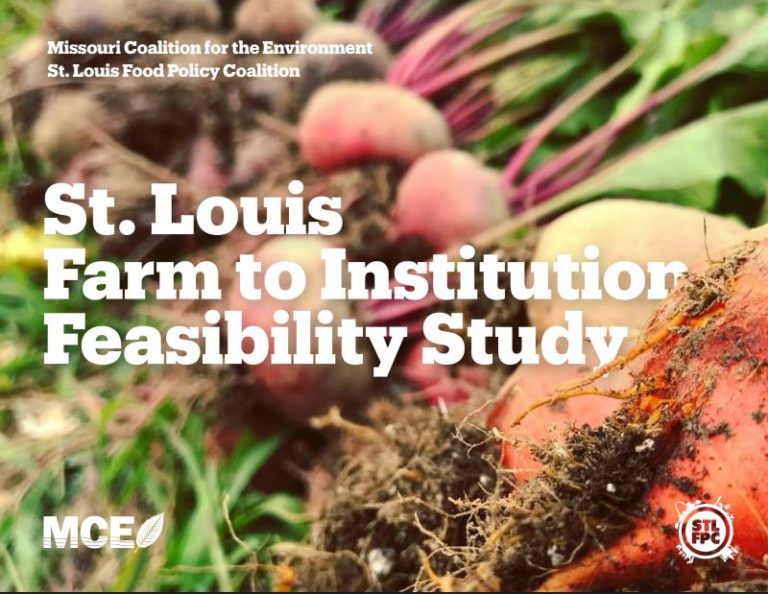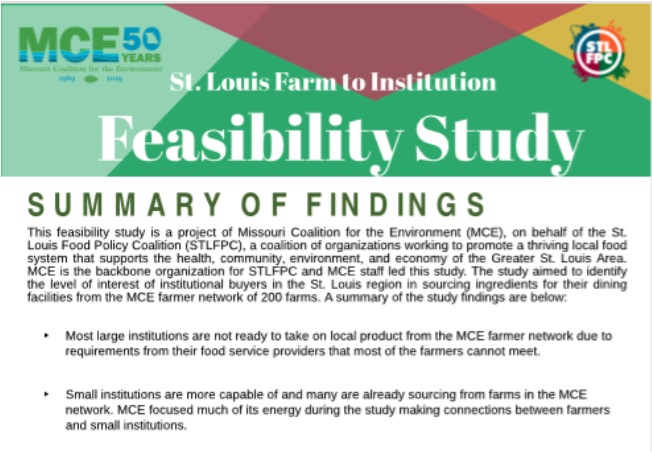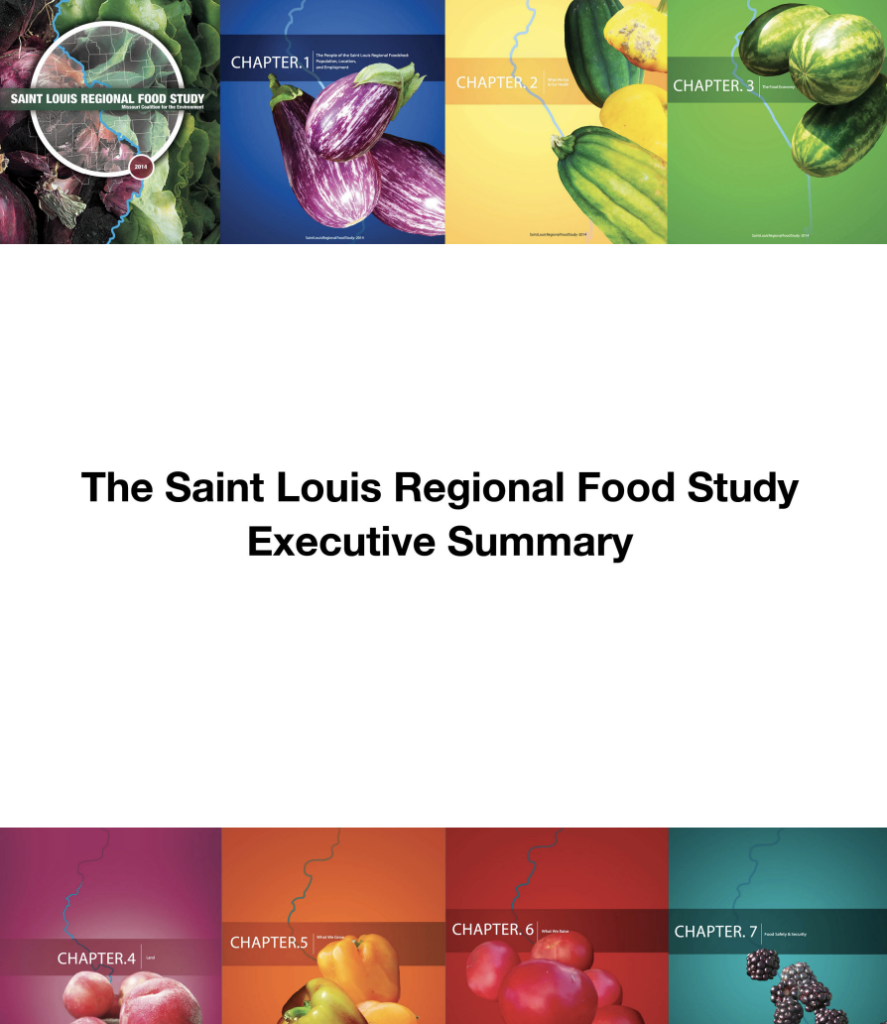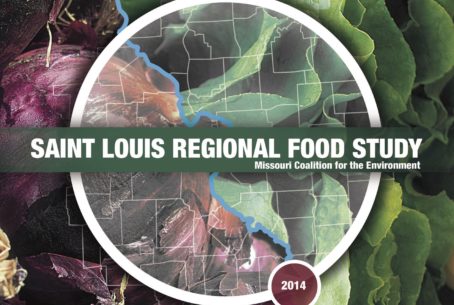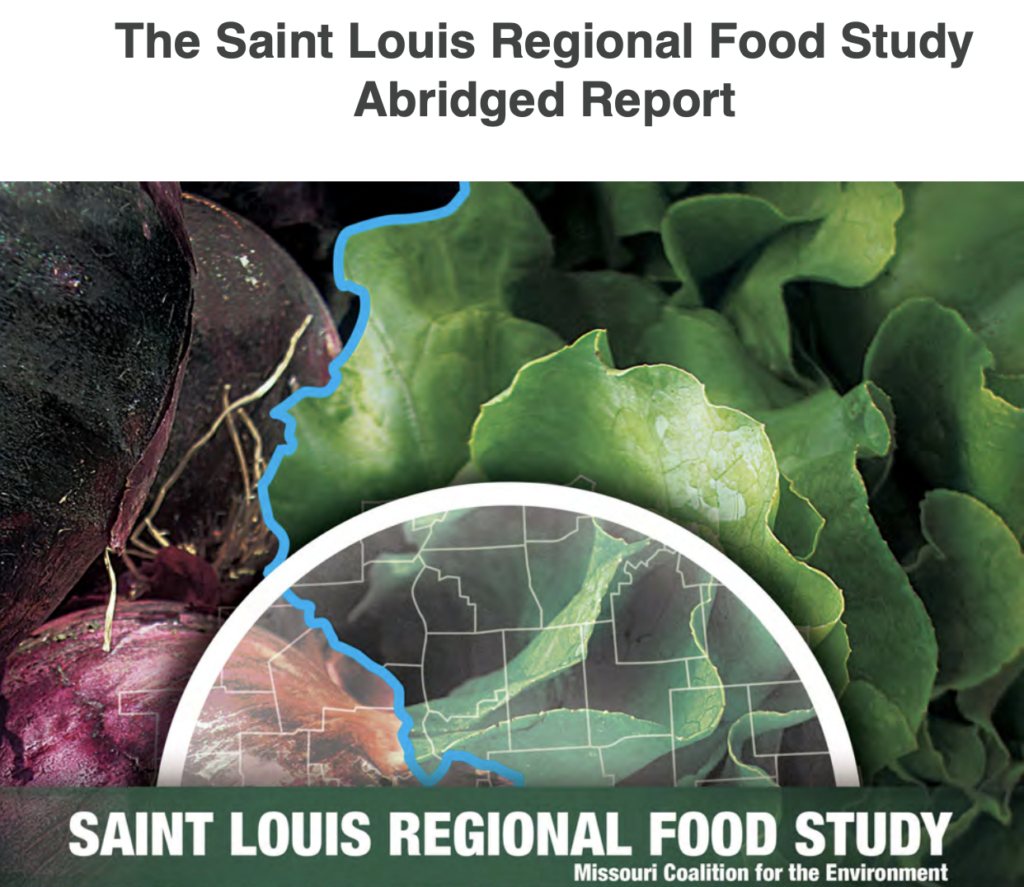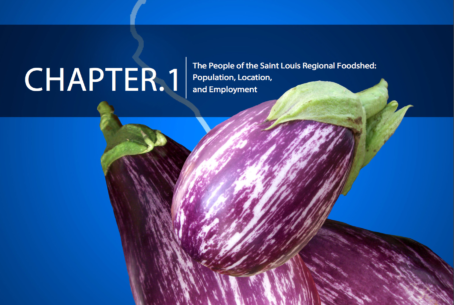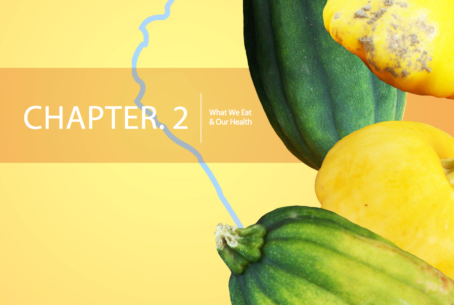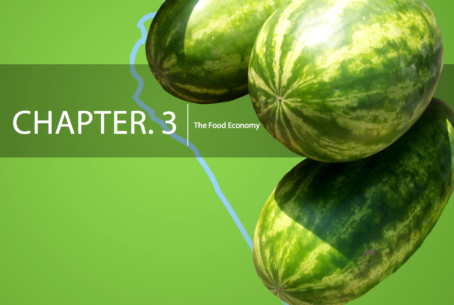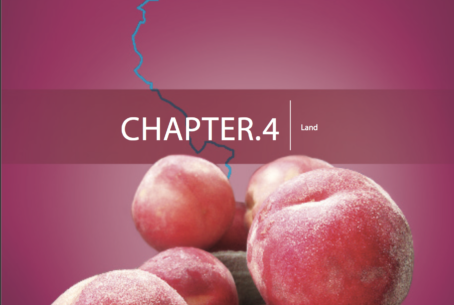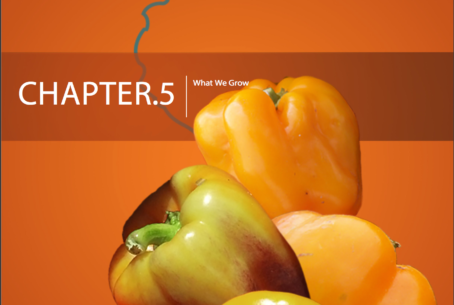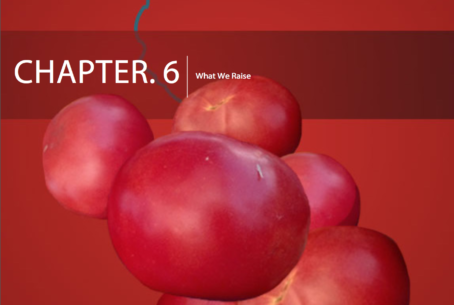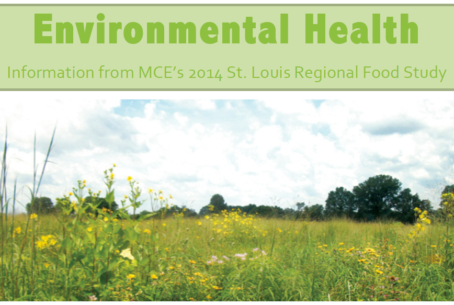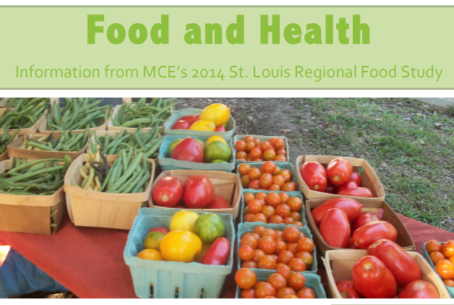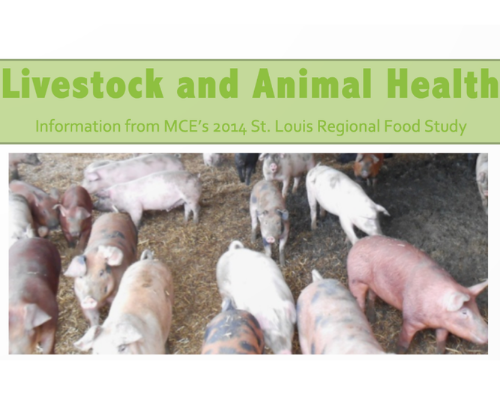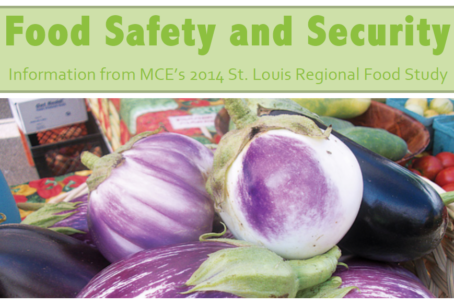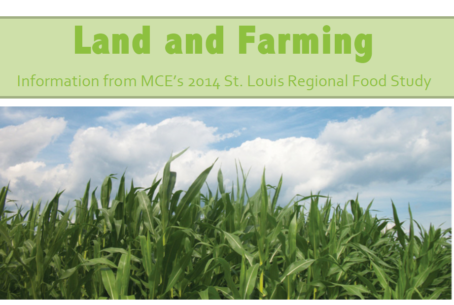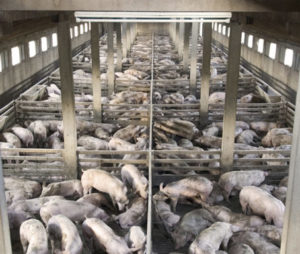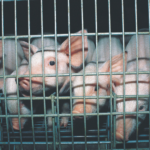We believe that the food system is an integral part of our environment and that a healthy food system is both sustainable and equitable—it preserves the integrity of air, land, and water while producing abundant, healthy food that is accessible and affordable across all communities.
Our environment provides us with many natural resources and benefits, from the air we breathe and the water we drink to natural spaces that help us relax and reconnect with nature and each other. The food we eat is also a resource provided by our environment and, like air and water, is one that none of us can live without.
MCE’s works to diversify Missouri’s farming economy, help environmentally-responsible farmers thrive, participate in community-led food justice programs, conserve fertile soils and clean water, and ensure access to a healthy and secure food supply for all people. We believe that to sustain a healthy environment and healthy communities across Missouri, we must work toward a future in which nutritious, locally produced food is accessible and affordable for everyone, and farmers can make a living wage producing it. Learn more about MCE’s food and farm work, and how you can take action today.
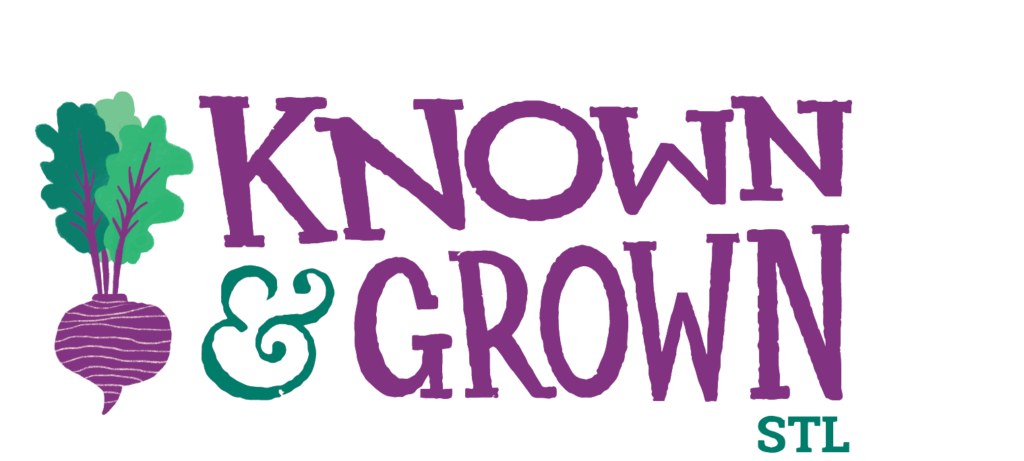
Known & Grown STL is a program of the Missouri Coalition for the Environment that certifies and promotes local, sustainable farmers within 150 miles of St. Louis, MO to help create an eco-friendly, equitable, and thriving local food system. Learn about our standards for environmental stewardship here.
Known & Grown STL provides:
- Recognition for environmentally-friendly, local food products and producers
- Financial stability and growth for those who farm, produce, and sell local food
- Opportunities for entrepreneurs and existing businesses to create local jobs
- Education for the general public about local, environmentally-friendly farming practices
Sustainable Food Policy
From farm to fork, our food system should be something we are proud of, making the safest and healthiest food available for everyone. A world-class food system that works for all Missouri and American families is built on sustainable food policies. These policies include improved food safety, eco-friendly farming practices, and greater access to healthy food. MCE works to advance sustainable food policies at the local, state, and federal levels.
Guides
St. Louis Regional Food Studies
Where food, health, and the environment come together.
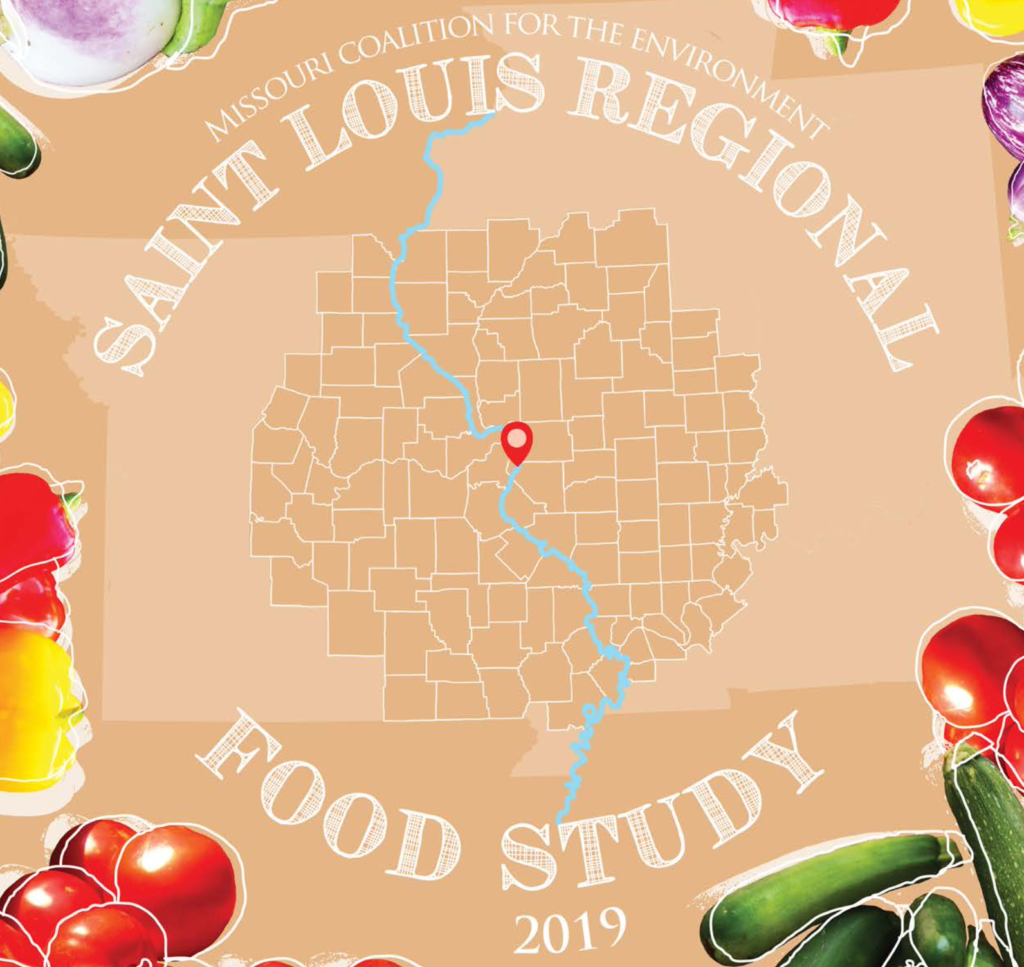
Missouri Coalition for the Environment is excited to announce the release of our 2019 St. Louis Regional Food Study, updated with data from the 2012 and 2017 U.S. Agriculture Census! The 2019 update expands the geographic scope to 150 miles around St. Louis to reflect the expansion of our foodshed work over the last five years.
In order to support the St. Louis region’s environmentally-responsible farmers and build up the local food economy, MCE, as the backbone organization for the St. Louis Food Policy Coalition, works to help these farmers sell their products to area institutions, both large and small. With USDA funding, MCE spent 18 months conducting a feasibility study for building up institutional purchasing of farm products from the MCE farmer network.
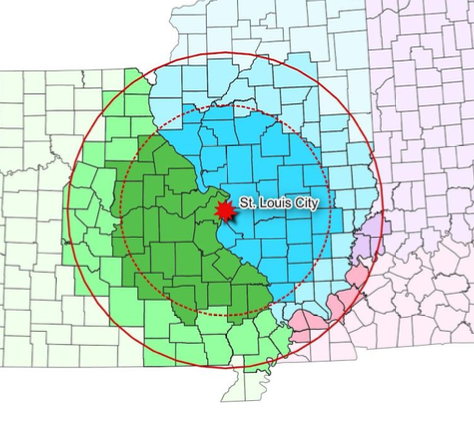
This update from 2017 looks at both the 150 mile radius and the previous 100 mile radius from 2014 around St. Louis, MO in order to facilitate comparison with the 2014 Food Study data.
The 2014 St. Louis Food Study was conducted to better understand the connections between our food, health, and environment. In order to understand the local effects of the industrialized food system, our staff compiled data from the USDA and the Missouri’s Center for Applied Research and Environmental Systems (CARES). MCE’s research demonstrates the clear link between our food, our health, and the health of our environment. We hope that this study will provide relevant data to individuals and organizations working on food, farm, & health in order to promote a more sustainable food system.

